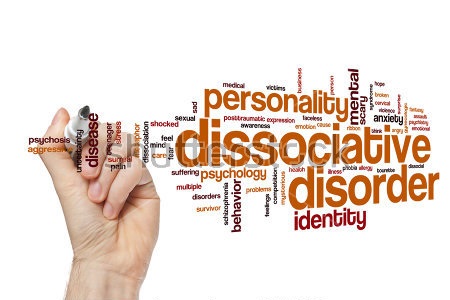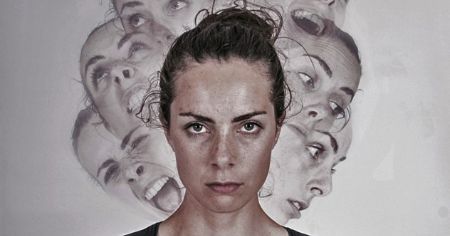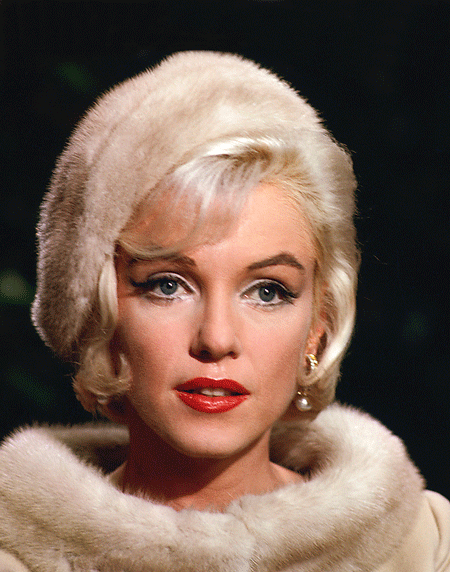What is Dissociative Identity Disorder? Know Details of the Celebrities Who are Suffering From the Psychological Condition

Dissociative identity disorder (DID) was formerly called multiple personality disorder, is a condition wherein a person's identity is fragmented into two or more distinct personality states.
The self-conscious mind of ours automatically prefers to stay far away from distraction at a point rather than being involved with the crowd of the modern world.
Many of us have encountered dissociation, which resembles staring off into space at some time while away on work. This mental illness is scientifically termed as a Dissociative Identity Disorder.
So, what is Dissociative Identity Disorder actually that has rooted in today’s world which has flourished rapidly? Let’s find out!!!
What is Dissociative Identity Disorder?
Dissociative identity disorder (DID) was formerly called multiple personality disorder, is a condition wherein a person's identity is fragmented into two or more distinct personality states.
It is a serious type of dissociation, a psychological procedure which delivers an absence of connection in a person's thoughts, memories, feelings, actions, sense of identity and/or perception. People with this rare condition are often victims of severe abuse.

Be that as it may, dissociative identity disorder is thought to come from the combination of components that may incorporate trauma experienced by the individual with the disorder.
Recommended: What is Bipolar Disorder? See its Signs, symptoms, and Treatment
The dissociative viewpoint is believed to be a method for dealing with stress - the individual truly separates himself from a circumstance or experience that is excessively vicious, traumatic, or agonizing to absorb with one’s self-consciousness.
Signs and Symptoms
With dissociative character issue, there's additionally a failure to recall key personal information that is too far-reaching to be explained as mere forgetfulness.
Alongside the separation and different or split identities, individuals with dissociative disarranges may encounter various other mental issues, including symptoms:
- Mental health problems such as depression, anxiety, and thoughts of suicide
- A feeling of detachment from your emotions, or emotional numbness
- Sleep disorders (night terrors and sleep walking)
- Eating disorders
- Drug and alcohol addiction
- Out-of-body experiences, such as feeling as if you are viewing a film of yourself
- Significant memory loss of specific times, people and events
- Depersonalization (feeling detached from one's very own contemplations, sentiments, and body)
- Derealization (feeling that the surrounding condition is foreign, odd, or unreal)
Nevertheless, the symptoms of dissociative disorders depend on the type of disorder that has been diagnosed. There are three types of dissociative disorders defined in the Diagnostic and Statistical Manual of Mental Disorders (DSM); Dissociative Amnesia, Depersonalization disorder, and Dissociative identity disorder.
Causes
While the causes of dissociative identity disorder are still vague, dissociative identity disorder is most often form in children exposed to long-term physical, sexual or emotional abuse.

Research indicates that it is likely a psychological response to interpersonal and environmental stresses, particularly during early childhood days when emotional neglect or abuse may interfere with personality development.
Natural disasters and combat can also cause dissociative disorders.
Are There Famous People With Dissociative Identity Disorder?
Famous people with dissociative identity disorder include Britney Spears, Nicki Minaj, Marilyn Monroe, Mel Gibson.
1. Britney Spears
As indicated by Daily Mail, sources near Britney Spears guaranteed in 2008 that the vocalist was "experiencing dissociative character issue, which drives the sufferers to go up against different identities to separate them from the real world."

As per those sources, Britney was "said to have been demonstrating a wide range of identities. Other than " The British girl", other alter egos include "The Weepy Girl," "The Diva," and "The Incoherent Girl."
2. Nicki Minaj
Individuals frequently refer to Nicki Minaj's change sense of self, Roman Zolanski, as proof that she is dealing with multiple personality disorder.

As she explained,
"Roman is so flamboyant, so outspoken, so open, and, you know, creative."
“Everybody knows my favorite alter ego is Roman. He’s bad. That’s why I like Roman. I think I started liking Roman more because everybody else started liking Roman, so he became my favorite. People are expecting him to do some real craziness on the next album.”
Also, she admitted the same thing on MTV News as well.
3. Marilyn Monroe
It's for quite some time been suspected that Marilyn Monroe was experiencing dissociative identity disorder.

Taking a gander at Monroe's life, it's speculated that the performing artist had "something like 5 of the 9 manifestations required for a BPD analysis," including: "identity disturbance" and "frantic efforts to avoid real or imagined abandonment."
She struggled with pre-performance anxiety that made her ill on the sets itself.
4. Mel Gibson
As Mel Gibson said in a 2002 interview with the BBC, he has a change inner self-named “Bjorn" that Gibson describes as "just ah, the kind of, like sort of, pillaging Viking."

Some took this as a sign that Gibson is dealing with a dissociative identity disorder.
Diagnosis and Treatment
The essential treatment for DID is long-term psychotherapy with the objective of deconstructing the distinctive identities and joining them into one.
In spite of the fact that there are no meds that explicitly treat this issue, antidepressants, anti-anxiety drugs or tranquilizers may be prescribed to help control the mental health symptoms. However, Dissociative disorders are managed through various therapies including:
- Psychotherapies such as cognitive behavioral therapy (CBT) and dialectical behavioral therapy (DBT)
- Medications such as antidepressants can treat symptoms of related conditions.
- Eye movement desensitization and reprocessing (EMDR)
